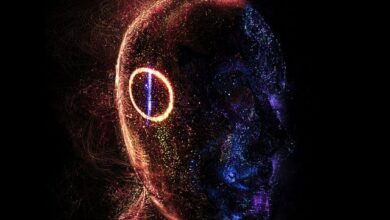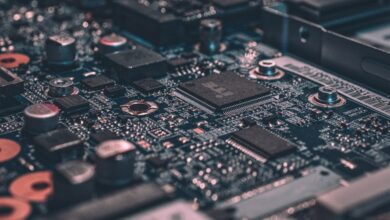AI in Mental Health Diagnosis and Treatment


In the world of mental health, advancements in technology have paved the way for innovative approaches to diagnosis and treatment. One such breakthrough is the integration of Artificial Intelligence (AI) into mental health practices, offering a new frontier of possibilities. With its ability to process vast amounts of data and analyze patterns, AI is transforming mental health care, providing more accurate diagnoses and personalized treatment plans. Let’s delve into the details of how AI is revolutionizing mental health diagnosis and treatment.
Diagnosing mental health conditions has traditionally relied on subjective assessments and lengthy evaluations. However, AI algorithms can augment this process by analyzing patient data, including symptoms, medical history, and genetic information, thereby providing a more objective assessment. By recognizing subtle patterns and correlating various factors, AI systems can assist clinicians in making reliable and timely diagnoses.
Moreover, AI-powered chatbots and virtual assistants are being developed to engage with individuals seeking mental health support. These empathetic digital companions use natural language processing to interact with users, offering a safe space for them to express their emotions. Through conversational interfaces, AI can gather valuable insights about an individual’s mental well-being, detect concerning trends, and provide immediate resources or suggest professional help when needed.
The potential of AI also extends to treatment interventions. Machine learning algorithms can analyze vast databases of treatment outcomes to identify effective therapies tailored to individual patients. This approach allows mental health professionals to develop personalized treatment plans that consider each patient’s specific needs, improving overall effectiveness and reducing the risk of adverse effects.

Another exciting application of AI in mental health is the use of wearable devices. These devices, equipped with sensors, collect real-time physiological and behavioral data, providing continuous monitoring of an individual’s mental state. AI algorithms can then analyze this data to detect early warning signs of relapse or significant changes in mood, alerting both patients and healthcare providers to take proactive measures.
AI has opened up new avenues in mental health diagnosis and treatment. By leveraging its analytical capabilities, AI assists clinicians in making accurate diagnoses, while chatbots and virtual assistants offer support and resources to individuals in need. Personalized treatment plans driven by AI algorithms ensure that patients receive optimal care tailored to their unique requirements. With the ongoing advancements, AI continues to reshape the landscape of mental health care, bringing hope and progress to millions affected by mental health conditions worldwide.
Revolutionizing Mental Healthcare: How AI is Transforming Diagnosis and Treatment
Can you imagine a world where technology plays a pivotal role in revolutionizing mental healthcare? Well, that world is not so far away. Artificial Intelligence (AI) is making remarkable strides in transforming the way we diagnose and treat mental health conditions. It’s like having a trusted companion by your side, providing insights and support to both patients and healthcare professionals.
Traditionally, diagnosing mental health disorders has been a complex and time-consuming process. However, with AI, this process is becoming more efficient and accurate. AI algorithms can analyze vast amounts of data, including patient history, symptoms, genetic information, and brain imaging scans, to identify patterns and make precise diagnostic predictions. This enables early detection and intervention, leading to improved patient outcomes.
But AI doesn’t stop at diagnosis. It is also transforming the treatment landscape. Imagine having a personalized treatment plan tailored specifically to your needs. AI-powered tools can analyze individual patient data, such as genetics, lifestyle factors, and treatment response, to develop personalized treatment strategies. These tools can adapt and learn from each patient’s progress, continually refining and optimizing treatment plans for better outcomes.

Virtual assistants powered by AI are also emerging as valuable resources in mental healthcare. They can provide 24/7 support, offering guidance, monitoring symptoms, and even intervening during crises. These virtual companions create a safe space for individuals to express their thoughts and emotions without fear of judgment. They offer a listening ear and evidence-based techniques to manage stress, anxiety, and depression, empowering individuals to take control of their mental well-being.
Furthermore, AI is facilitating advancements in therapy delivery. For instance, teletherapy platforms integrated with AI can provide remote counseling sessions and support, breaking down geographical barriers and increasing access to mental healthcare. This is particularly beneficial for individuals residing in rural or underserved areas, where mental health services may be limited.
The Rise of AI Therapists: Can Artificial Intelligence Replace Human Psychologists?
Imagine a world where therapy sessions happen with an artificial intelligence (AI) therapist instead of a human psychologist. It may sound like something out of a science fiction movie, but the rise of AI therapists is becoming a reality. With advancements in technology and the increasing use of AI, this alternative form of therapy is gaining attention and raising questions about whether AI can truly replace human psychologists.
One of the advantages of AI therapists is their availability 24/7. Unlike traditional therapy sessions that require scheduling and waiting for appointments, AI therapists can be accessed anytime, anywhere. They provide a convenient and accessible option for individuals seeking support or guidance. Whether it’s late at night or during a busy day, you can have a virtual conversation with an AI therapist at your convenience.
AI therapists also offer a level of anonymity that some people find appealing. Sharing personal struggles and emotions can be challenging, but interacting with a machine eliminates the fear of judgment or stigma. AI therapists provide a safe space where individuals can freely express themselves without the anxiety that often accompanies face-to-face interactions.
Furthermore, AI therapists can analyze vast amounts of data and clinical studies to offer evidence-based advice and suggestions. They can process information quickly and provide personalized recommendations based on an individual’s unique circumstances. This ability to gather and utilize extensive knowledge allows AI therapists to offer insights and strategies that might not be readily available to human psychologists.
However, despite these benefits, there are valid concerns about whether AI therapists can truly replace human psychologists. Therapy is a deeply human experience that involves empathy, understanding, and emotional connection. Human psychologists bring their expertise, intuition, and ability to establish a therapeutic alliance that goes beyond data analysis. They can interpret non-verbal cues, understand the complexities of human emotions, and adapt their approach to meet the specific needs of each individual.
Unleashing the Power of Machine Learning: AI’s Potential in Accurate Mental Health Diagnoses
Imagine a world where mental health diagnoses are not only efficient but also highly accurate. Thanks to the power of machine learning, this vision is becoming a reality. Artificial Intelligence (AI) is revolutionizing the field of mental health by offering new opportunities for precise diagnoses and personalized treatment plans. With its ability to process vast amounts of data, AI holds immense potential in transforming the way we understand and address mental health conditions.
One of the key advantages of utilizing machine learning in mental health diagnoses is its capacity to analyze large datasets with incredible speed and accuracy. Traditional methods often rely solely on subjective assessments by human clinicians, which can be prone to biases and errors. However, AI algorithms can examine an extensive range of factors such as medical records, genetic information, patient questionnaires, and even social media activity. By considering multiple dimensions simultaneously, AI can uncover patterns and correlations that may elude human clinicians, leading to more reliable diagnoses.
Furthermore, by continuously learning from new data, machine learning algorithms can adapt and improve over time. This means that the diagnostic capabilities of AI can become increasingly refined and nuanced, ultimately enhancing the accuracy of mental health diagnoses. The more data AI processes, the better it becomes at identifying subtle indicators and predicting outcomes based on individual characteristics. In this regard, AI acts as a supportive tool for healthcare professionals, enabling them to make more informed decisions and provide targeted interventions tailored to each patient’s unique needs.
The potential impact of AI in mental health goes beyond diagnostics. Machine learning techniques can also contribute to the development of personalized treatment plans. By analyzing data from large cohorts of individuals with similar conditions, AI algorithms can identify effective interventions and predict treatment outcomes. This approach allows for a more evidence-based and individualized approach to mental healthcare, helping clinicians and patients make informed decisions regarding therapy options, medication choices, and lifestyle modifications.
Machine learning and AI hold tremendous promise in revolutionizing mental health diagnoses and treatment. By harnessing the power of data analysis and pattern recognition, AI algorithms can offer more accurate and personalized assessments, empowering both patients and healthcare professionals. While human expertise remains essential, the collaboration between humans and machines has the potential to unlock new frontiers in mental health care, paving the way for improved outcomes and a brighter future.
Breaking Barriers: How AI is Overcoming Stigma in Mental Health Diagnosis
In the realm of mental health, there exists a persistent barrier that hinders many from seeking proper diagnosis and treatment: stigma. The fear of judgment, the lack of understanding, and the societal biases associated with mental illnesses have prevented countless individuals from receiving the support they desperately need. However, a ray of hope has emerged in the form of Artificial Intelligence (AI), which is revolutionizing mental health diagnosis and challenging the prevailing stigma.
AI technologies are transforming the landscape of mental health diagnosis by providing accurate and objective assessments. Through advanced algorithms and machine learning, AI can analyze vast amounts of data, including speech patterns, facial expressions, and behavioral cues, to detect potential signs of mental health disorders. By removing human subjectivity, AI offers an unbiased approach that reduces stigmatization. Individuals can now receive diagnoses based on scientific evidence rather than relying solely on subjective opinions.
Moreover, AI-powered mental health applications are making diagnosis and treatment accessible to a wider population. Traditional diagnostic processes often involve long waiting times, limited resources, and high costs, leaving many untreated. AI-based tools, such as chatbots and virtual assistants, offer immediate support and guidance. These digital companions provide a safe space for users to express their feelings without fear of judgment, helping them overcome the stigma associated with seeking help for mental health issues.
By leveraging AI, mental health professionals can also improve the effectiveness of treatment plans. AI algorithms can analyze vast databases of medical records, treatment outcomes, and research studies to identify patterns and recommend personalized interventions. This empowers clinicians with valuable insights and enables them to deliver targeted therapies tailored to each individual’s unique needs. As a result, the effectiveness of treatment increases, reducing the stigma associated with ineffective or prolonged therapy.
The integration of AI into mental health care not only breaks down barriers but also has the potential to save lives. Early detection of mental health disorders through AI-based analysis enables timely interventions and prevents further progression of the illness. By providing accurate diagnoses and personalized treatment plans, AI empowers individuals to take control of their mental well-being, leading to improved outcomes and reduced stigma.
AI is revolutionizing mental health diagnosis by breaking down barriers and overcoming stigma. With its objective and data-driven approach, AI removes subjectivity and provides accessible support to those in need. By leveraging advanced algorithms and machine learning, AI offers accurate diagnoses, personalized treatment plans, and immediate assistance, transforming the landscape of mental health care. As we continue to embrace the potential of AI, we are paving the way for a future where mental health is destigmatized and everyone can receive the support they deserve.




